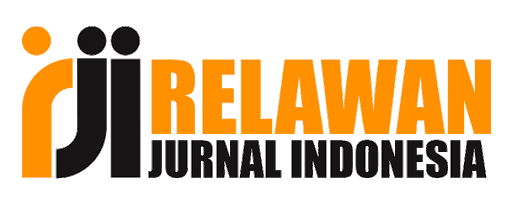Coaching Model : Metode Mitra Belajar Agama Kolaboratif pada Program Tutorial PAI Pembelajaran Agama Islam Universitas Jambi
DOI:
https://doi.org/10.51311/nuris.v9i2.440Keywords:
Model Coaching, Pembelajaran Kolaborasi, Tutor Pendidikan Agama IslamAbstract
The urgency of guidance/coaching-based religious learning in higher education is absolutely in the demands of the current era of collaboration. Where the rapid flow of information and digitalization leads students to deviant religious behavior without being aware of the weak control and input of students' basic religious beliefs. This study aims to provide an explanation of the concept and implementation of the coaching model along with its supports and implementation constraints in the Jambi University Islamic Education tutorial program in providing basic religious guidance through collaboration between PAI lecturers and coaches/tutors within the framework of coaching modeling. The method used in this study is based on descriptive qualitative research methods. Which aims to explain a phenomenon as deeply as possible by collecting data as deeply as possible, which shows the importance of the depth and detail of the data being studied according to their needs. : (1) in-depth interviews; (2) observation; (3) documentation is used as the data collection technique. The results of this study indicate that first, the implementation of coaching models in tutorial activities is carried out with active and participatory collaboration between lecturers, tutors/coaches and students/coachees with an increase in religiosity through a fortopolio-based assessment of religious proficiency (FKB). Second, the obstacles that become obstacles are related to the effectiveness and efficiency of time and the quality of input for the low initial ability of students. and Finally, the support carried out with this activity is the availability of adequate infrastructure and textbooks, and the greatest support is from competent and professional Coach/Tutor resources by passing recruitment and selective competency tests.
Downloads
References
Adeshola, Ibrahim, and A. Mohammed Abubakar. “Assessment of Higher Order Thinking Skills,” 2020. https://doi.org/10.4018/978-1-7998-2314-8.ch008.
Creswell, John W. “Educational Research: Planning, Conducting, and Evaluating Quantitative and Qualitative Research.” Educational Research, 2012.
Fitriastuti, and Triana. “Pengaruh Kecerdasan Emosional, Komitmen Organisasional Dan Organization Citizenship Behavior Terhadap Kinerja Karyawan.” Jurnal Dinamika Manajemen 4, no. 2 (2013): 103–14.
O’Connor, J., & Lages, A. Coaching the Brain: Practical Applications of Neuroscience to Coaching. Routledge. I. England: Routledge., 2019.
Panchal, Sasikala, and Patricia Riddell. “The GROWS Model: Extending the GROW Coaching Model to Support Behavioural Change.” The Coaching Psychologist 16, no. 2 (2020).
Poglinco, S. M., A. J. Bach, K. Hovde, S. Rosenblum, and M. Saunders. “The Heart of the Matter: The Coaching Model in America’s Choice Schools.” CPRE Research Reports., 2003.
Rajasa, S. Kamus Ilmiah Populer. Surabaya: Karya Utama, 2002.
Sirozi. “Radikalisme Di Kalangan Mahasiswa Perlu Diwaspadai.” https://republika.co.id/, 2018.
Sukwan, Ophat, Prapansiri Susaorat, Thanarat Taewattana, and Wilailack Langka. “The Development of Industrial Students Coaching Model under Dual Vocational Training System for Entrepreneurial Trainer: Concentration in Industrial Education.” Kasetsart Journal of Social Sciences 42, no. 2 (2021). https://doi.org/10.34044/j.kjss.2021.42.2.07.
Sumar, W. T., & Razak, I. A. Strategi Pembelajaran Dalam Implementasi Kurikulum Berbasis Soft Skill. Deepublish. Jakarta. Deepublish., 2016.
Supriadi, U. Buku Peserta Tutorial PAI DPU Universitas Pendidikan Indonesia. Bandung: Value Press, DPU., 2018.
Terblanche, N. H.D. “The Coaching Model Derivation Process: Combining Grounded Theory and Canonical Action Research for Developing Coaching Models.” Coaching 13, no. 1 (2020). https://doi.org/10.1080/17521882.2019.1619794.
TIm Dosen PAI. “Panduan Tutorial PAI Dan Program Khatam Al-Quran,” Kedua., 25. Jambi, 2020.
Universitas Jambi. Peraturan Rektor Universitas Jambi Nomor?: 02 Tahun 2017 tentang Penyelenggaraan Mata Kuliah Agama Islam . (2017).
Wijaya, Hengki, Sekolah Tinggi, and Filsafat Jaffray. “Analisis Data Kualitatif Model Spradley,” no. March (2018).
Zyl, Llewellyn E. van, Lara C. Roll, Marius W. Stander, and Stefanie Richter. “Positive Psychological Coaching Definitions and Models: A Systematic Literature Review.” Frontiers in Psychology, 2020. https://doi.org/10.3389/fpsyg.2020.00793.
Downloads
Published
How to Cite
Issue
Section
License
Copyright (c) 2022 NUR EL-ISLAM : Jurnal Pendidikan dan Sosial Keagamaan

This work is licensed under a Creative Commons Attribution 4.0 International License.
NUR EL ISLAM Journal is an Open Access Journal. The authors who publish the manuscript in this journal agree to the following terms:
(1) The formal legal provisions for access to digital articles of this electronic journal are subject to the terms of the Creative Commons Attribution 4.0 International License (CC BY 4.0), which means that Nur El Islam reserves the right to save, transmit media or format, Database), maintain, and publish articles without requesting permission from the Author as long as it keeps the Author's name as the owner of Copyright.
(2) The reproduction of any part of this journal, its storage in databases and its transmission by any form or media, such as electronic, electrostatic and mechanical copies, photocopies, recordings, magnetic media, etc., will be allowed only with a written permission from Nur El Islam.








